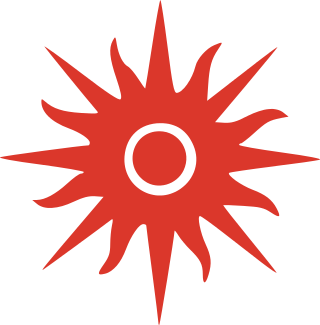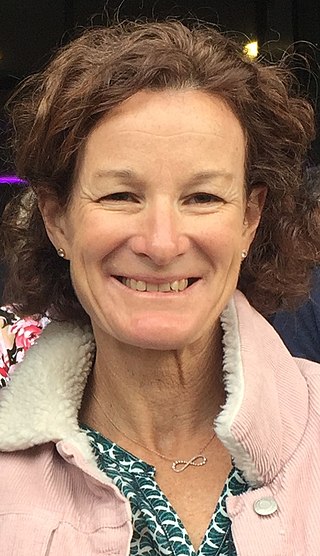
The Winter Olympic Games is a major international multi-sport event held once every four years for sports practiced on snow and ice. The first Winter Olympic Games, the 1924 Winter Olympics, were held in Chamonix, France. The modern Olympic Games were inspired by the ancient Olympic Games, which were held in Olympia, Greece, from 776 BC to 394 AD. The Baron Pierre de Coubertin of France founded the International Olympic Committee (IOC) 1,500 years later in 1894, leading to the first modern Summer Olympic Games in Athens, Greece in 1896. The IOC is the governing body of the Olympic Movement, with the Olympic Charter defining its structure and authority. The original five Winter Olympic Sports were bobsleigh, curling, ice hockey, Nordic skiing, and skating. The Games were held every four years from 1924 to 1936, interrupted in 1940 and 1944 by World War II, and resumed in 1948. Until 1992, the Summer Olympic Games and the Winter Olympic Games were held in the same year. A decision to change this was made in 1986, when during the 91st International Olympic Committee session, IOC members decided to alternate the Summer Olympic Games and the Winter Olympic Games on separate four-year cycles in even-numbered years. Also, at that same congress it was decided that 1992 Winter Olympics would be the last to be held in the same year as the Summer Games and that to change the rotation, the edition that would be held in 1996 would be brought forward by two years, being scheduled to 1994.After this edition, the next one was to be held in 1998 when the 4-years Olympic Cycle resumed.

The Commonwealth Games is a quadrennial international multi-sport event among athletes from the Commonwealth of Nations, which mostly consists of territories of the former British Empire. The event was first held in 1930 and, with the exception of 1942 and 1946, has successively run every four years since. The event was called the British Empire Games from 1930 to 1950, the British Empire and Commonwealth Games from 1954 to 1966, and British Commonwealth Games from 1970 to 1974. Athletes with a disability are included as full members of their national teams since 2002, making the Commonwealth Games the first fully inclusive international multi-sport event. In 2018, the Games became the first global multi-sport event to feature an equal number of men's and women's medal events, and four years later they became the first global multi-sport event to have more events for women than men.

The Asian Games, also known as Asiad, is a continental multi-sport event held every fourth year among athletes from all over Asia. The Games were regulated by the Asian Games Federation (AGF) from the first Games in New Delhi, India in 1951, until the 1978 Games. Since the 1982 Games, they have been organized by the Olympic Council of Asia (OCA), after the breakup of the Asian Games Federation. The Games are recognized by the International Olympic Committee (IOC) and are described as the second largest multi-sport event after the Olympic Games.

The 2008 Summer Olympics, officially the Games of the XXIX Olympiad and also known as Beijing 2008, were an international multisport event held from 8 to 24 August 2008, in Beijing, China, amidst the Great Recession. A total of 10,942 athletes from 204 National Olympic Committees (NOCs) competed in 28 sports and 302 events, one event more than those scheduled for the 2004 Summer Olympics. This was the first time China had hosted the Olympic Games, and the third time the Summer Olympic Games had been held in East Asia, following the 1964 Olympics in Tokyo, Japan, and the 1988 Olympics in Seoul, South Korea. These were also the second Summer Olympic Games to be held in a communist state, the first being the 1980 Summer Olympics in the Soviet Union.

The Gay Games is a worldwide sport and cultural event that promotes acceptance of sexual diversity, featuring lesbian, gay, bisexual, and transgender (LGBT) athletes, artists and other individuals.
Gen Con is the largest tabletop game convention in North America by both attendance and number of events. It features traditional pen-and-paper, board, and card games, including role-playing games, miniatures wargames, live action role-playing games, collectible card games, and strategy games. Gen Con also features computer games. Attendees engage in a variety of tournament and interactive game sessions. In 2019, Gen Con had nearly 70,000 unique attendees.

Sonia O'Sullivan is an Irish former track and field athlete. She won a gold medal in the 5000 metres at the 1995 World Championships, and a silver medal in the 5000 metres at the 2000 Olympic Games. Her 2000 m world record of 5:25.36, set in 1994 stood until 2017.

Marvin Darnell Harrison Sr. is an American former professional football player who was a wide receiver for 13 seasons with the Indianapolis Colts of the National Football League (NFL), playing much of it with quarterback Peyton Manning. He played college football for the Syracuse Orange and was selected by the Colts in the first round of the 1996 NFL Draft.

The FIBA Basketball World Cup is an international basketball competition between the senior men's national teams of the members of the International Basketball Federation (FIBA), the sport's global governing body. It takes place every four years and is considered the flagship event of FIBA.
Allyn Condon is an English former sprinter and bobsleigher. At the Vancouver Olympic Games in 2010 he became the seventh person to have competed for Great Britain in both the Summer and Winter Olympic Games having already competed in the Sydney Olympics in 2000.

Canada has competed at every Winter Olympic Games, and has won at least one medal each time. By total medals, the country's best performance was in the 2018 Winter Olympic Games where Canadian athletes won 29 medals. Canada set a new record for most gold medals won by a country in a single Winter Olympics with 14 at the 2010 Winter Olympics in Vancouver, Canada. This achievement surpassed the previous record of 13 gold medals held by the Soviet Union (1976) and Norway (2002). Both Germany and Norway matched the record total of 14 gold medals in Pyeongchang in 2018. This record has since been surpassed by Norway with 16 at the 2022 Winter Olympics.

Australia first competed at the Games, then titled the British Empire Games, in 1930; and is one of only six countries to have sent athletes to every Commonwealth Games. The others are Canada, England, New Zealand, Scotland, and Wales. Australian athletes competed for Australasia at the 1911 Festival of the Empire, the forerunner to the British Empire Games.

The 3000 metres or 3000-metre run is a track running event, also commonly known as the "3K" or "3K run", where 7.5 laps are run around an outdoor 400 m track, or 15 laps around a 200 m indoor track.
The Men's 400m Individual Medley event at the 2006 Central American and Caribbean Games occurred on Tuesday, July 18, 2006 at the S.U. Pedro de Heredia Aquatic Complex in Cartagena, Colombia.
The men's 4 × 100 m Freestyle Relay event at the 2006 Central American and Caribbean Games occurred on Wednesday, July 19, 2006, at the S.U. Pedro de Heredia Aquatic Complex in Cartagena, Colombia.
The men's 4 × 100 m Medley Relay event at the 2006 Central American and Caribbean Games occurred on Saturday, July 22, 2006 at the S.U. Pedro de Heredia Aquatic Complex in Cartagena, Colombia.

The 2002 Asian Games was a multi-sport event held in Busan, South Korea from September 29 to October 14, 2002. Busan was the second South Korean city to host the Games, after Seoul in 1986. A total of 6,572 athletes—4,605 men and 1,967 women—from 44 Asian National Olympic Committees (NOCs) participated in 38 sports divided into 419 events. The number of competing athletes was higher than the 1998 Asian Games, in which 6,544 athletes from 41 NOCs participated. It was the first time in the history of the Asian Games that all 44 member nations of the Olympic Council of Asia (OCA) participated in the Games. Afghanistan returned after the fall of the Taliban government in the midst of ongoing war; East Timor, newest member of the OCA made its debut; and North Korea competed for the first time in an international sporting event hosted by South Korea. Both nations marched together at the opening ceremony with a Korean Unification Flag depicting the Korean Peninsula as United Korea.

Angela Ballard is an Australian Paralympic athlete who competes in T53 wheelchair sprint events. She became a paraplegic at age 7 due to a car accident.













